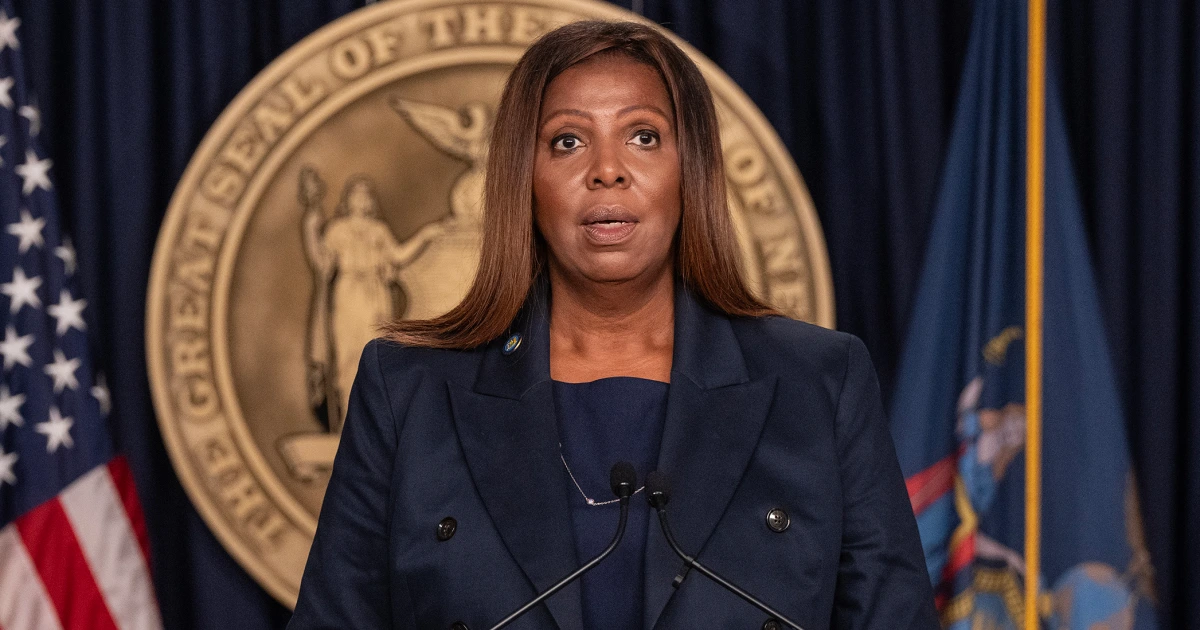A “criminal referral” sounds serious, but it doesn’t force prosecutors to file charges against anyone. Still, New York State Attorney General Letitia James could have reason to worry about a Trump administration official’s push for her to face federal charges — even if she didn’t break the law.
The cause for concern stems from the general nature of the criminal system as well as the specific nature of how President Donald Trump’s Justice Department wields the law on his behalf.
Trump’s second term has been a provocation against the law itself.
James, of course, leads the office that secured the massive civil fraud ruling against Trump and others last year (it’s on appeal). But with Trump back in office, his federal housing director wrote a “criminal referral” letter regarding James to Attorney General Pam Bondi and Deputy Attorney General Todd Blanche, who previously defended Trump personally in his impeachment and criminal cases.
“Based on media reports,” federal housing director William J. Pulte wrote, “Ms. Letitia James has, in multiple instances, falsified bank documents and property records to acquire government backed assistance and loans and more favorable loan terms.” He listed several statutes he said James “could” have violated and urged the DOJ to consider “criminal prosecution.”
James’ spokesperson said she’s “focused every single day on protecting New Yorkers, especially as this Administration weaponizes the federal government against the rule of law and the Constitution. She will not be intimidated by bullies — no matter who they are.”
It’s great to not be intimidated by bullies. But given the weaponization that James’ statement acknowledged, is there reason to assume that any potential case against her will be assessed dispassionately by the Trump DOJ? The seedy examples in the early days of his second term are too many to list here, from the DOJ’s handling of New York City Mayor Eric Adams’ corruption case to its contemptuous courtroom behavior that the chief federal trial judge in Washington, D.C., just blasted. The president has attempted to use his power to exact punishment against law firms and individuals alike. His second term has been a provocation against the law itself.
To be sure, the system has crucial guardrails — namely, judges and juries. But let’s assume, for argument’s sake, that James is completely innocent (something that can’t be fully assessed without first examining any charges that come). If she’s charged in such a scenario, she’d have little comfort to take in the possibility of eventually getting the charges dismissed by a judge or acquitted by a jury. The clichéd rejoinder of what do you have to worry about if you’re innocent has superficial appeal but ignores reality, which can include great personal and financial costs along the way, even if one is ultimately vindicated of bogus charges.
It’s like the question of whether high-profile figures should’ve wanted former President Joe Biden to pardon them before leaving office, to protect them against revenge from the incoming Trump administration. As I noted in connection with that phenomenon, “While there’s a certain logic and perhaps even a seeming bravery in calling the next administration’s bluff, innocence doesn’t guarantee vindication in court.”
The good news, such as it is, for any targets of Trump’s second term, is that the courts have been an important (if imperfect) bulwark against the president’s excesses. But given that vindication is never guaranteed, no one should want to have to rely on the courts to save them.
Subscribe to the Deadline: Legal Newsletter for expert analysis on the top legal stories of the week, including updates from the Supreme Court and developments in the Trump administration’s legal cases.
